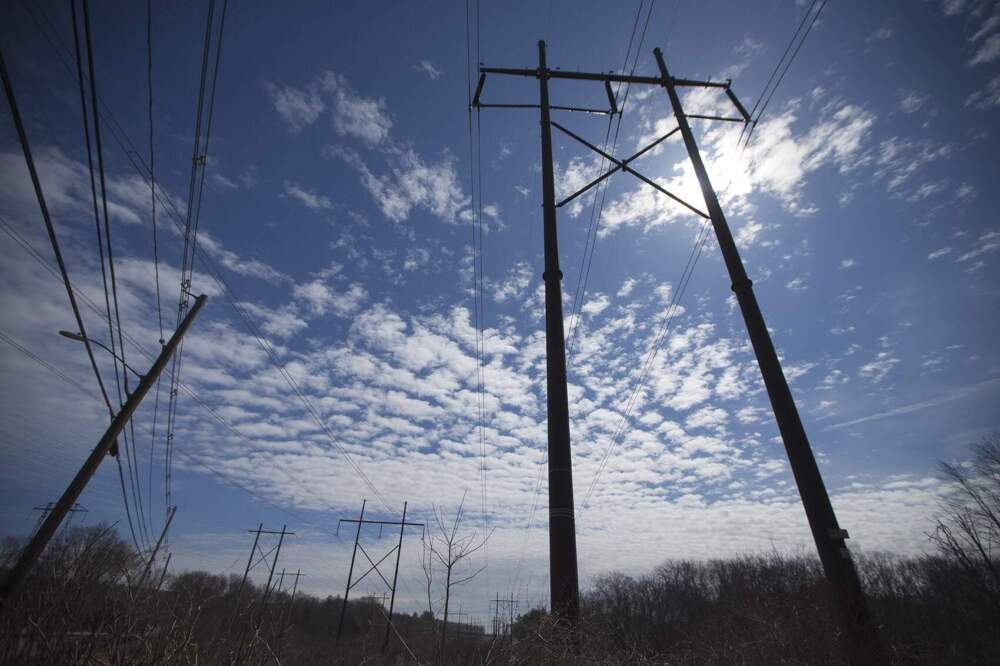Advertisement
Boston's Morning Newsletter
Boston residents can get greener (and cheaper) electricity through the city. Here's how

Editor's Note: This is an excerpt from WBUR's daily morning newsletter, WBUR Today. If you like what you read and want it in your inbox, sign up here.
It may not be December yet, but it sure feels like it this morning. Before you start eyeing the ski reports, let’s get to the news:
Want to save on your electric bill this winter? Boston officials are encouraging residents to switch to the city’s electricity program. It’s called Community Choice Electricity, a municipal aggregation program in which the city purchases electricity in bulk from the supplier. The program’s new rates lock in for two years next month. And according to Boston officials, there’s two big selling points: It’s now both greener and — for at least seven months — cheaper.
- How it’s greener: The BCCE program offers three options, with varying rates and levels of energy from renewable sources like wind and solar. The cheapest, Optional Basic, includes 24% renewable energy; the default Standard option includes 34%; and the more expensive, Optional Green 100, is 100% renewable. (For comparison, Eversource’s basic service provides 22% renewable energy.)
- How it’s cheaper: All three BCCE plans also cost less than the rate for Eversource customers through at least next July. (This wasn’t always the case.) According to the city, the average BCCE customers on the Standard plan would save $15 a month over that time period. (BCCE rates could be cheaper beyond next July, though officials can’t guarantee it since utilities change their rates twice a year.)
- How to sign up: Boston has a guide for residents interested in switching to a BCCE plan. It’s pretty simple for Eversource Basic Service customers: Just start by filling out this form.
- Residents who have signed a contract with a third-party electric supplier will probably need to call up the supplier directly and check if their contract has termination fees (and if they can be waived). Boston has more info on the steps here.
- Zoom out: Boston isn’t the only one doing this. There are 175 cities and towns in Massachusetts with municipal aggregation programs. Click here for the full list. There are also others hoping to launch similar programs, but the towns say they’re being delayed by red tape.
Gov. Maura Healey announced yesterday that she’s creating a new position to oversee the state’s response to climate change along the coast. WBUR’s Barbara Moran reports the new “chief coastal resilience officer” — a yet-to-be-hired person within the state’s Office of Coastal Zone Management — will work with communities to develop long-term solutions for flooding and sea-level rise.
- Why it matters: Massachusetts is expected to face about over a foot of sea level rise in the next few decades. With the new position, Healey is trying to get the state’s 78 different coastal communities to work together on the issue to address impacts like storm surges and erosion — something that hasn’t been done before. It’s part of a new strategy dubbed “ResilientCoasts.”
- What’s next: Healey’s administration has posted the job opening, with the hopes of kicking off interviews in December. According to a spokesperson, they expect the new chief coastal resilience officer will begin work by early 2024.
The decommissioning of the Pilgrim Nuclear Power Station in Plymouth could now take until 2035. The plant’s owner, Holtec, has announced yesterday its second four-year delay since May.
- WCAI’s Jennette Barnes reports the delay could have big implications for the contentious disposal of radioactive water in the plant. That’s because the water and its contaminants could evaporate into the air before 2035 even arrives.
- State regulators recently denied Holtec’s request to discharge the water into Cape Cod Bay. However, people on both sides say that human exposure to radioactive tritium would be higher from evaporation than from discharging the water into the bay.
Cambridge’s proposed ban on gas-powered leaf-blowers is moving forward. After a hearing Monday, the Boston Herald reports the Cambridge City Council’s Ordinance Committee voted to advance the measure yesterday. The full City Council is expected to vote on the proposal by the end of the year.
- If passed, residents would only be allowed to use electric leaf blowers starting in 2025. The Ordinance Committee also voted to move up the start date of the ban on gas leaf blowers for businesses and municipal uses from 2027 to 2026.
P.S.— Harvard plans to offer a new class this spring centered around (who else?) Taylor Swift. According to the course description, the class will focus on Swift’s progression as a songwriter, her influences and fan culture. We can only assume Harvard Swifties are ready for it.
